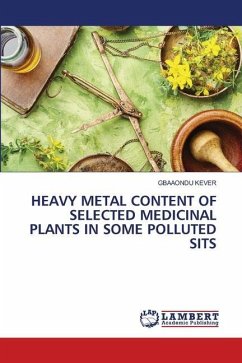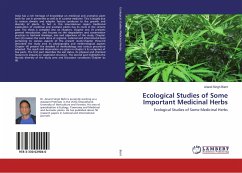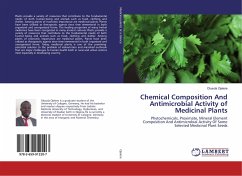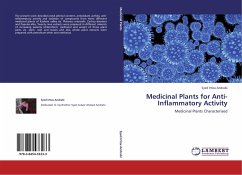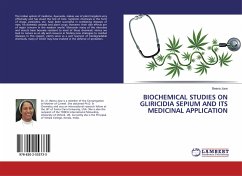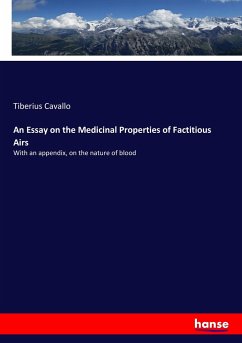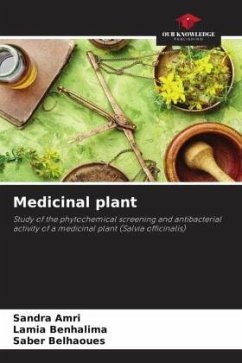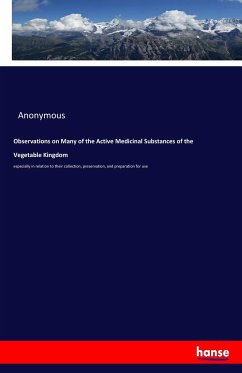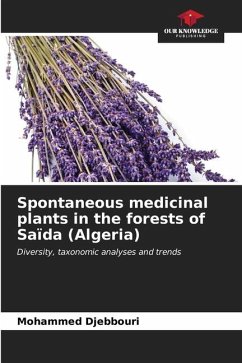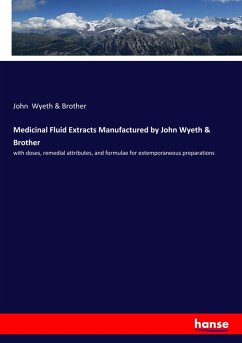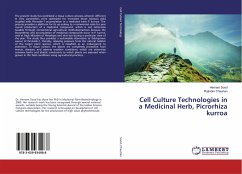
Cell Culture Technologies in a Medicinal Herb, Picrorhiza kurroa
Versandkostenfrei!
Versandfertig in 6-10 Tagen
43,99 €
inkl. MwSt.

PAYBACK Punkte
22 °P sammeln!
The present study has optimized a tissue culture process wherein different in vitro parameters were optimized for increased shoot biomass yield coupled with Picroside-1 accumulation in a medicinal herb P. kurroa. The process provides a platform for its up-scaling to a commercial scale for year round production of a medicinal compound, which is not otherwise feasible through conventional agricultural methods/practices because the biosynthesis and accumulation of medicinal compounds occur in P. kurroa only at high altitudes of Himalayas and that too during a particular time of the year. The stud...
The present study has optimized a tissue culture process wherein different in vitro parameters were optimized for increased shoot biomass yield coupled with Picroside-1 accumulation in a medicinal herb P. kurroa. The process provides a platform for its up-scaling to a commercial scale for year round production of a medicinal compound, which is not otherwise feasible through conventional agricultural methods/practices because the biosynthesis and accumulation of medicinal compounds occur in P. kurroa only at high altitudes of Himalayas and that too during a particular time of the year. The study thus provides a sustainable alternative to field-grown source of Picroside-1, thereby, relieving pressure from the natural habitat of the target plant species, which is classified as an endangered to extinction. In tissue culture, the plants are completely protected from insects, diseases, and adverse weather conditions, which are otherwise common biotic and abiotic constraints to which plants are exposed when grown in the field conditions using agricultural practices.



